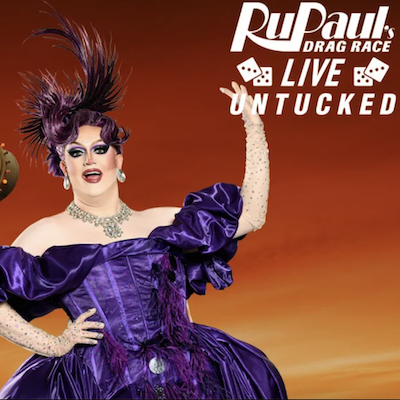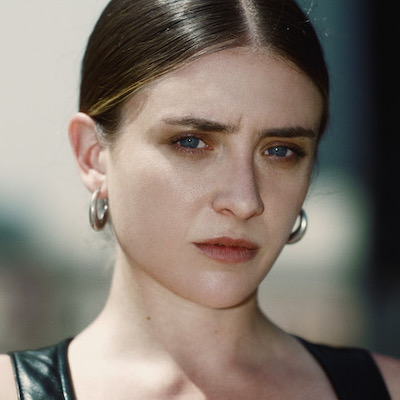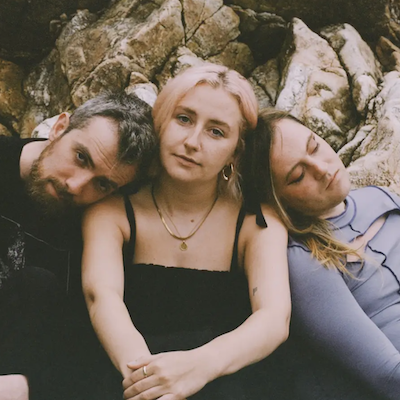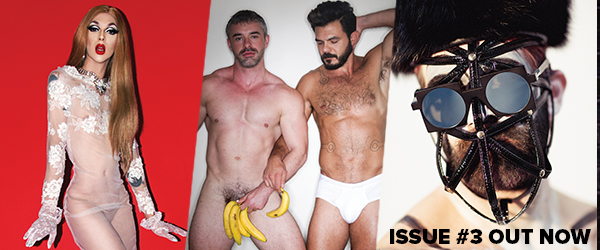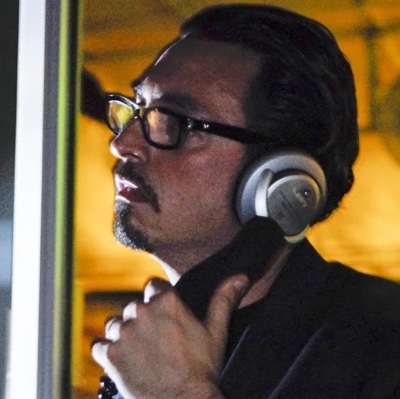
To try and even begin to summarise the career of someone as iconic as Eric Kupper in a brief intro paragraph is a nigh-on impossible task. The man has been in the game since 1986, as a Producer, Mixer, Remixer…musician who has received calls from just about everyone. His work can be heard on some of the most legendary anthems of all time, CeCe Peniston’s ‘Finally’, Alison Limerick’s ‘Where Love Lives’, RuPaul’s ‘Supermodel’ through to Roisin Murphy’s ‘Jealousy’ and Joe Goddard’s ‘Electric Lines.’ It’s impossible to find a fully comprehensive list of his credits because he has contributed to so many records and that’s before we even get to his work with David Morales, Frankie Knuckles & Peter Rauhofer.
Eric is now celebrating more than thiry-five years in the business with a new three volume compilation, A Lifetime in Dance Music. Encapsulating some of his biggest moments and personal triumphs. Volume I is out now and feature his work with Depeche Mode, Diana Ross and as part of Degrees of Motion. Loverboy spoke with Eric from his studio in New York to discuss just a few moments from his incredible career.
Hello Eric, it’s really a honour to be doing this. We’re here to talk about A Lifetime in Dance Music. But what are we calling this? A retrospective? A greatest hits?
Well, I almost wanted to call it A Lifetime in Dance Music so far because in a way it almost sounds like I am done now. Haha…no, I’m only kidding. The title is perfect. Basically last year would have been a big year for me, it was my thirty-fifth anniversary since my first release and my label turned twenty-five but we were still in mid-lockdown. But Covid is not so prevalent now. So we’re releasing the album in three volumes, double packs, eight tracks each, twenty four in total. It’s a year-long project so fingers-crossed there should be some touring next year. Some tracks will be vinyl only…
How has the resurgence of vinyl affected your world?
It’s great. I’m not going to say it brings in a tonne of money because that’s not its point but it’s almost like Merch. People buy it because they want that thing, they want something tangible. I think in the UK two years ago, Vinyl eclipsed Digital Downloads. I still buy vinyl. I don’t lug it around for a DJ gig – a flashdrive is good for me. I remember playing a Hed Kandi gig in Bristol back in the day and moving over to CD – I had records and CDs back then.
Take me back to the beginning of your DJ career…
I was in a band which started off in the late 70s, early 80s as a punk, no-wave band in New York City playing CBGBs. Then we morphed into a Blue-Eyed Soul band. The first person I worked with was Justin Strauss in 1986, who asked me to play guitar on a Bill Nelson record. I was like, ‘Oh God, yes!’ Then Justin said, ‘Well, while you’re here we kind of need a bassline….’ From there it turned into more steady work.
You went to work closely with three other icons: David Morales, Frankie Knuckles & Peter Rauhofer.
Yes, though first I worked with Richie Jones as part of Degrees of Motion in 1989 and one of our tracks, ‘Shine On’, is on this first A Lifetime in Dance Music release. At that time everyone was working at Arthur Baker studio. It was an intense music mecca.That’s actually the first place I sat in a studio with Peter. I did something, he liked it, called me back and then I ended up doing the keyboards for David’s remix of ‘Tears’. This is all in about an eight day period. Then I got to meet Frankie and we worked on our first session together.
My God, I cannot imagine. It sounds incredible. Are there three specific songs that are your favourite from working together?
It’s difficult but definitely Inner City’s ‘What you gon do with my lovin’?’ It’s 106bpm but you can play it any time of the night if you fit it in right and people will still go nuts. ‘The Whistle Song’ obviously too which came just a little later in 1991. Then Alison Limerick ‘Where Love Lives’, Cece Peniston, ‘Finally’ – we made a few together that made a little noise.
Haha…most definitely! Anthems only.
It was unbelievable the amount of work we were doing and the quality of it! This was not me sitting behind a laptop. This was an engineer, an assistant engineer, a tea boy, tape operators – you had all the studio people, it was this big collaborative effort. The first record Peter and I did together was a remix on Gig records, a Viennese label Peter was working for. He called me to put out a song together, we went into the studio, did the shakedown and recorded it. It was the first time I’d ever recorded Background Vocals in a professional studio and it happened to be Jocelyn Brown and Connie Harvey, who I used to call the Dynamic Duo. I’d stick a mic in there and say, ‘Do this.’ They’d say, ‘OK.’ That would take all of one hour!
From there Peter & I became friends. Then we did the Club 69 album at first. I didn’t do, ‘Let Me Be Your Underwear’, but I did about sixty percent of the album. We did ‘Diva’ together. We did just all these wonderful tracks and established a relationship.
Wow, I could listen to these stories forever. I’m a huge Mariah fan and I know you worked on remixes for her…
OK, well, the first remix I did for Mariah was ‘Dreamlover’ with David which was massive. David came to me and I wrote a keyboard track that had zero to do with ‘Dreamlover.’ It was in a different key! But he said, ‘We’re going to get her to re-sing ‘Dreamlover’ over whatever we do.’ It was the first time a singer came in and resung the song. It was historical.
I feel David and Peter are on different ends of the same spectrum. How was it working flipping between the two?
Oh I loved it. It kept things fresh. I think I became popular with DJs as a keyboardist because I could get inside their heads as to where they…I went to see them play, I saw their crowd, I knew what they did and I would play appropriately for them. The harder stuff that I did with Peter, the more bangin’ stuff sounded nothing like what I did with David or Frankie so I was able to morph myself.
Right because you later worked with Peter on remixes for Mariah during the Emancipation era.
I did ‘We Belong Together’ and a couple of others with Peter. At that point, not long before he passed, he was just coming in twice a week and we’d be cranking it out. It’s almost like he had a mandate to just get a lot of music out. I think he knew something was going on.
Who have been your favourite vocalists to work with?
I did an entire album for Diana Ross so me and her voice got really tight. When you work with an artist like that and you just get the nuances of their voice. We went back as far as 1970 and then I did Thank You and one other one….I’m terrible even with the names of my own tracks! ‘If The World just Danced’ that’s it. So Diana has to be top on the list.
I got to produce a track for Aretha Franklin. My friend Wayne Williams, one of the Chosen Few DJs of Chicago, was working for Jive Records at RCA. He called me and said, ‘You’re going to get a call from Clive Davis..’ and I was like, ‘Oh really?’ Wayne told me that he had suggested to Clive, I put together a demo track for Aretha because they wanted to do a cover of ‘I’m Every Woman’ but with a section of ‘Respect’ in there too. I was like, ‘Um, ok…!’ For whatever reason I pulled it off somehow.
But if I look at the list of vocalists I have worked with over the years from Aretha, Diana, I’ve even done tracks for Ray Charles, Judy Garland…
And of course, RuPaul…
Ru has always been such an inspiration to work with. He is a wonderful entertainer, a wonderful human being. The ‘Supermodel’ single we did just celebrated it’s thirtieth birthday. We were having such fun in the studio and I think that shows on the record. I met Larry Tee, a New York Nightlife legend, he brought me in to work on Ru’s record ‘I’ve Got That Feeling’ in 1991. It might have had Lady Bunny on it as well. From there I got a call from World of Wonder, who said, ‘We’d like you to take this demo and make it into a record.’ That record was ‘Supermodel’. They liked what I did, gave me a couple more and said, ‘Do you know what? Let’s do an album.’ So I ended up writing the rest of the album with Ru and his team. We just had so much fun with no preconceived notions. If you listen to the album, it’s really diverse. We had tracks like ‘A Shade Shady’ which helped define ‘The Bitch Track’ that’s for sure.
I also see you’ve worked with Roisin Murphy a lot too.
Yes! Our relationship started with Francois Kevorkian who called me in to work on a remix of ‘Forever More’ which is still played to this day. It’s one of those post-modern records that doesn’t sound old because it was weird then and it’s weird now. At the time Francois was working on another project and I think Roisin had asked him to mix ‘You Know Me Better’ for her. Francois suggested she get in touch with me. From there I did a bunch of records with her. She liked the way I treated her voice. The thing I loved about working with her is that she would push me harder to make things sound more raw and tough. It was a lot of fun to work with her and who knows what’s down the line for us in the future.
Two years ago the British Press were talking about the return of Disco with Roisin, Kylie, Jessie Ware…
It’s funny because two years ago is when I was asked to remix Gloria Gaynor’s ‘I Will Survive’, McFadden & Whitehead’s ‘Ain’t No Stoppin’ Us Now’ and Earth, Wind & Fire’s ‘September’ and then Diana’s album! So I was like, ‘Um…ok!’ Haha…I think a few years ago in Britain, Disco was taken to a next level with smart people at labels like Defected and Glitterbox. I’m not saying this in a negative way, it was rebranding, remarketing music and giving a little more focus towards a certain kind of sound.
The Shapeshifters’ record with Billy Porter made a lot of noise didn’t it? I worked with Billy twenty years ago, before he was a star and just thought, ‘This guy is unbelievable.’ I think that track with The Shapeshifters was slap in the middle of the movement you are talking about. I think it really helped to bring….and I hate to use the word ‘musical’ because all music, whether it’s a kick drum or a weird noise, it’s all music to me. But a more ornate, elaborate, orchestrated sound came back.
Nervous Records have spoken out saying that House Music has been diluted by the new mainstream acts adopting it. What’s your take on this?
Diluted is an interesting word. If you look at the history of any trend, people always jump on the bandwagon. But I think the cream will always rise. There’s always going to be great music.
Eric Kupper – A Lifetime in Dance Music Vol 1 is out now.



